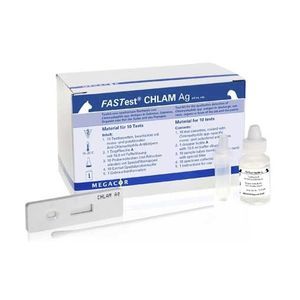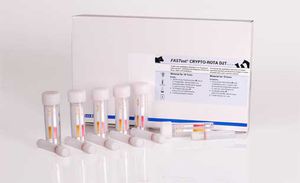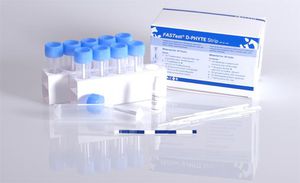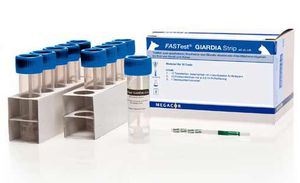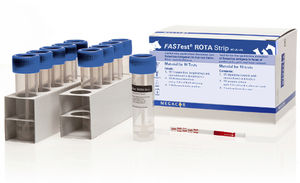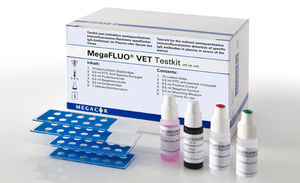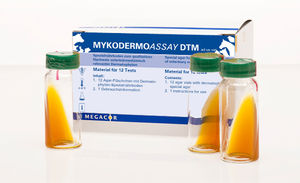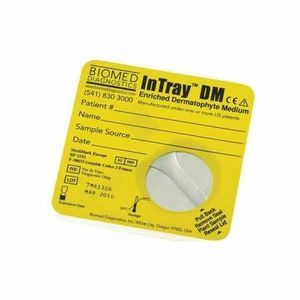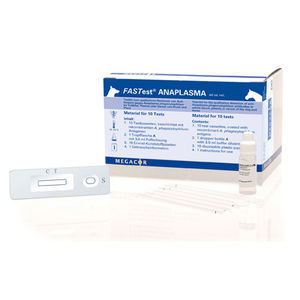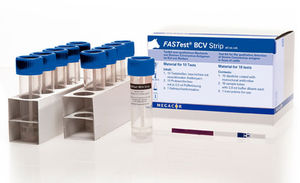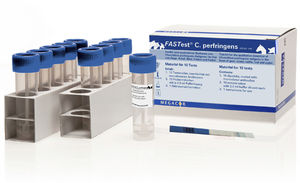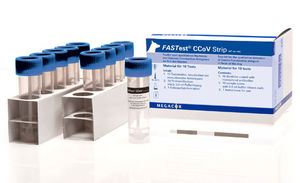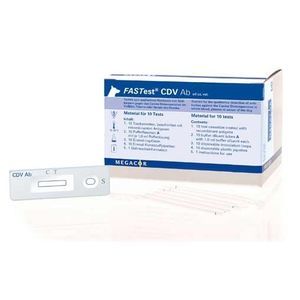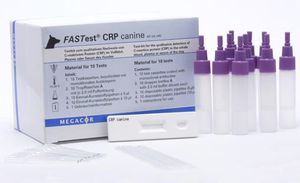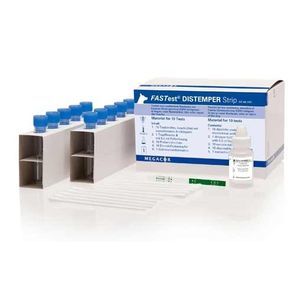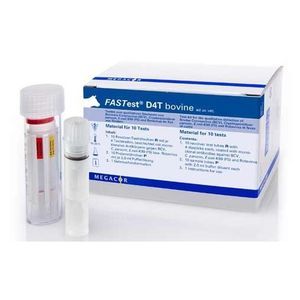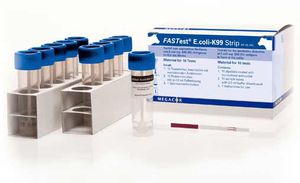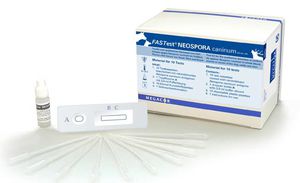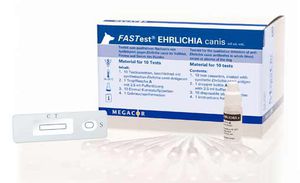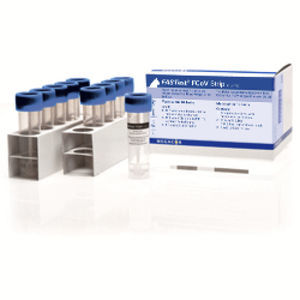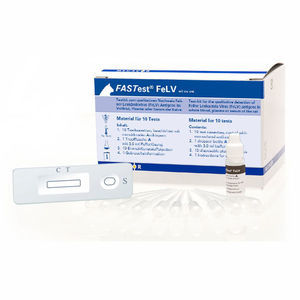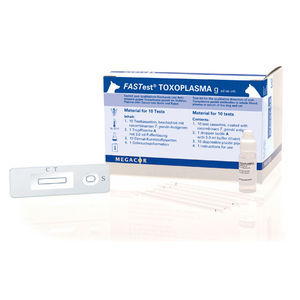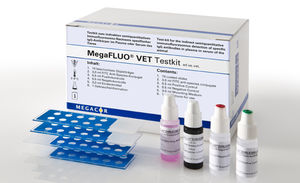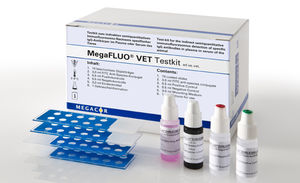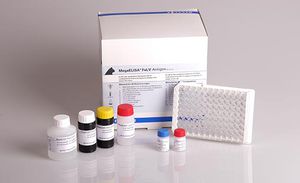
- Laboratory
- Laboratory medicine
- Rapid heartworm test
- MEGACOR Diagnostik
Rapid heartworm test FASTest® HWfor catsfor dogsfor antigens
Add to favorites
Compare this product
fo_shop_gate_exact_title
Characteristics
- Applications
- for heartworm
- Patient type
- for cats, for dogs
- Tested parameter
- for antigens
- Micro-organism
- Dirofilaria
- Sample type
- serum, plasma, whole blood, tissue
- Analysis mode
- immunochromatographic
- Result display time
15 min
- Specificity
99.1 %
- Sensitivity
98.6 %
Description
FASTest® HW Antigen is a rapid immunochromatographic test for the qualitative detection of Dirofilaria immitis specific antigens in whole blood, plasma or serum of the dog and cat.
The dirofilariosis of the dog, cat, ferret as well as other carnivores, is caused by the so-called “heart worm”, a nematode of the filaria family named Dirofilaria immitis. Infection of humans (dead end host) is possible (zoonosis). The filaria manifest especially in lungs and conjunctive tissue, but are rarely diagnosed. Dirofilariosis occurs world-wide in warmer climate zones, especially in the south of the USA, Middle and South America, in parts of Eastern Asia and in the Mediterranean area (Italy with the Padan Plain, Spain and Greece). However, there are first scientifically verified cases of dirofilariosis in Ticino (Switzerland). In the course of climate warming, dirofilariosis seems to be on the march to temperate zones.
The transmission happens via infected, haematophagous mosquito species (Culicidae), releasing infectious D. immitis larvae (stage L3) in the host blood with the sting. After development of the larva (stage L4) in the hypodermis of the host (about 8 days post infection), they migrate into the blood circulation. The establishment of the adult worms (macrofilaria: up to 1 mm thick, 20-30 cm long) takes place earliest 80 days post infection, most of all in the pulmonary artery and in the right heart chamber. The female adult parasite of the bisexual macrofilaria produce new larvae (stage L1, microfilaria) at first after 6 (dog) to 7 (cat) months.
Catalogs
No catalogs are available for this product.
See all of MEGACOR Diagnostik‘s catalogsRelated Searches
- Assay kit
- Blood assay kit
- Molecular biology reagent kit
- Serum assay kit
- Immunoassay assay kit
- Plasma assay kit
- Infectious disease detection kit
- Blood rapid diagnostic test
- Rapid lateral flow test
- Diagnostic reagent kit
- Laboratory reagent kit
- Immunoassay rapid diagnostic test
- Virus rapid diagnostic test
- Serum rapid diagnostic test
- Plasma rapid diagnostic test
- Histology reagent kit
- Infectious disease rapid diagnostic test
- Whole blood rapid diagnostic test
- Reagent medium reagent kit
- Immunology reagent
*Prices are pre-tax. They exclude delivery charges and customs duties and do not include additional charges for installation or activation options. Prices are indicative only and may vary by country, with changes to the cost of raw materials and exchange rates.



